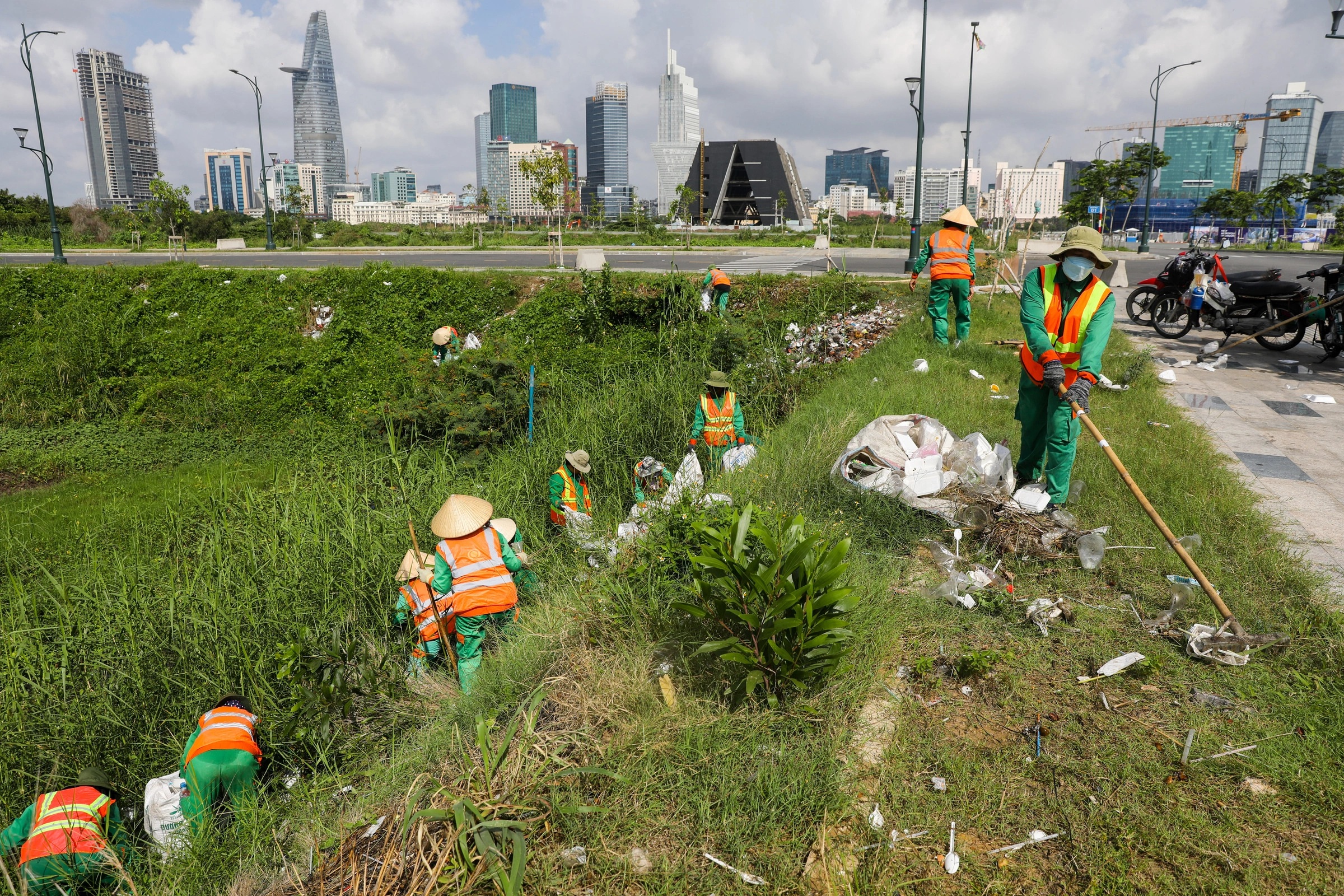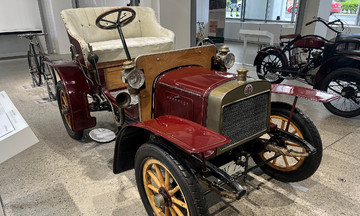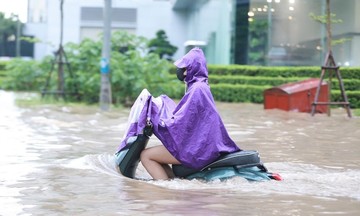This information was announced in Notice 435 from the Government Office, issued on 20/8, regarding the conclusions of Deputy Prime Minister Tran Hong Ha at a meeting reviewing traffic safety and order for the first 6 months of the year.
According to the directive, relevant ministries and agencies will review and advise the government on including community service penalties in the draft amendment to the Law on Administrative Sanctions, which will be submitted to the National Assembly for consideration. The goal is to add another penalty option besides fines, which have been the standard for many years. The government hopes that implementing community service will improve the awareness, responsibility, and law observance of road users.
 |
Sanitation workers cleaning up garbage in Thu Thiem New Urban Area, Thu Duc City, 5/2022. Photo: Quynh Tran
Many countries worldwide have adopted community service as an alternative or supplementary penalty to fines. Violators may have to participate in street cleaning, assist at community centers, or work at public facilities for a specific period.
For example, in Singapore, litterers can be forced to clean up public areas. In the US, some states allow the conversion of minor traffic fines (low-level speeding, illegal parking) into community service hours, such as cleaning parks, schools, or assisting community food banks. Thailand, Taiwan, and Kenya even penalize drunk drivers with mortuary cleaning duties.
There are currently no specific regulations on which violations community service would apply to, or for how long. These details will be researched and proposed during the law revision process to ensure feasibility and practicality.
Decree 100/2019 and, more recently, Decree 168/2024, are considered effective tools for regulating driver behavior, as fines for traffic offenses have increased significantly, especially for drunk driving and running red lights. However, after periods of intensive enforcement by traffic police, serious violations, like driving against traffic on highways, running red lights, and drunk driving, have shown signs of increasing again, with many cases leading to tragic accidents.
Ho Tan










